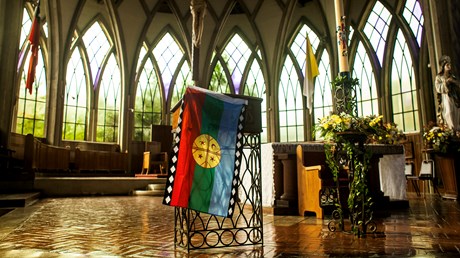
How Indigenous Conflicts in Chile Ended up Targeting Christians
Mapuche attacks against the government and environmental companies have included the arson of numerous churches.

Last week, the Argentine government blamed a fire that has consumed more than 7,000 acres of a national park in Patagonia on arson by an armed indigenous group known as the Resistencia Ancestral Mapuche (RAM).
The Mapuche, an indigenous community who have lived for generations in a territory now belonging to Argentina and Chile, have long been at odds with governments and businesses, often over land rights, environmental concerns, and fears of forced assimilation.
Despite the presence of Mapuche Christians, for a period of years, members of groups like Weichán Auca Mapu (WAM) and Coordinadora Arauco-Malleco (CAM) targeted numerous churches. The number of torched congregations reached more than 80. The government struggled to arrest and prosecute the attackers.
But after several intense years of terror, slowly the situation seems to be improving.
“We will continue to bear witness to the gospel,” Abelino Apeleo, an Anglican bishop in Araucanía and also an ethnic Mapuche, said in 2017, in the thick of the situation. “We have to apply the teachings of Jesus: to forgive, to have mercy, and to love our enemies. At some point they may need our help, and we will be there for them.”
Answered prayers?
In 2016, Elías Fuentealba witnessed WAM members burn down the small Pentecostal church he pastored in Niagara, a city in the southern division of Araucanía.
“The day of the arson, we gathered and prayed outside the church, ‘Lord, you give, and you take away. Blessed be your name,’” Fuentealba told CT. “When we finished praying, the police told us that, nearby there, they had caught some suspects of the crime.”
The five gunmen were charged with being members ...
from Christianity Today Magazine https://ift.tt/MuOoW9w

0 Response to "How Indigenous Conflicts in Chile Ended up Targeting Christians"
Post a Comment